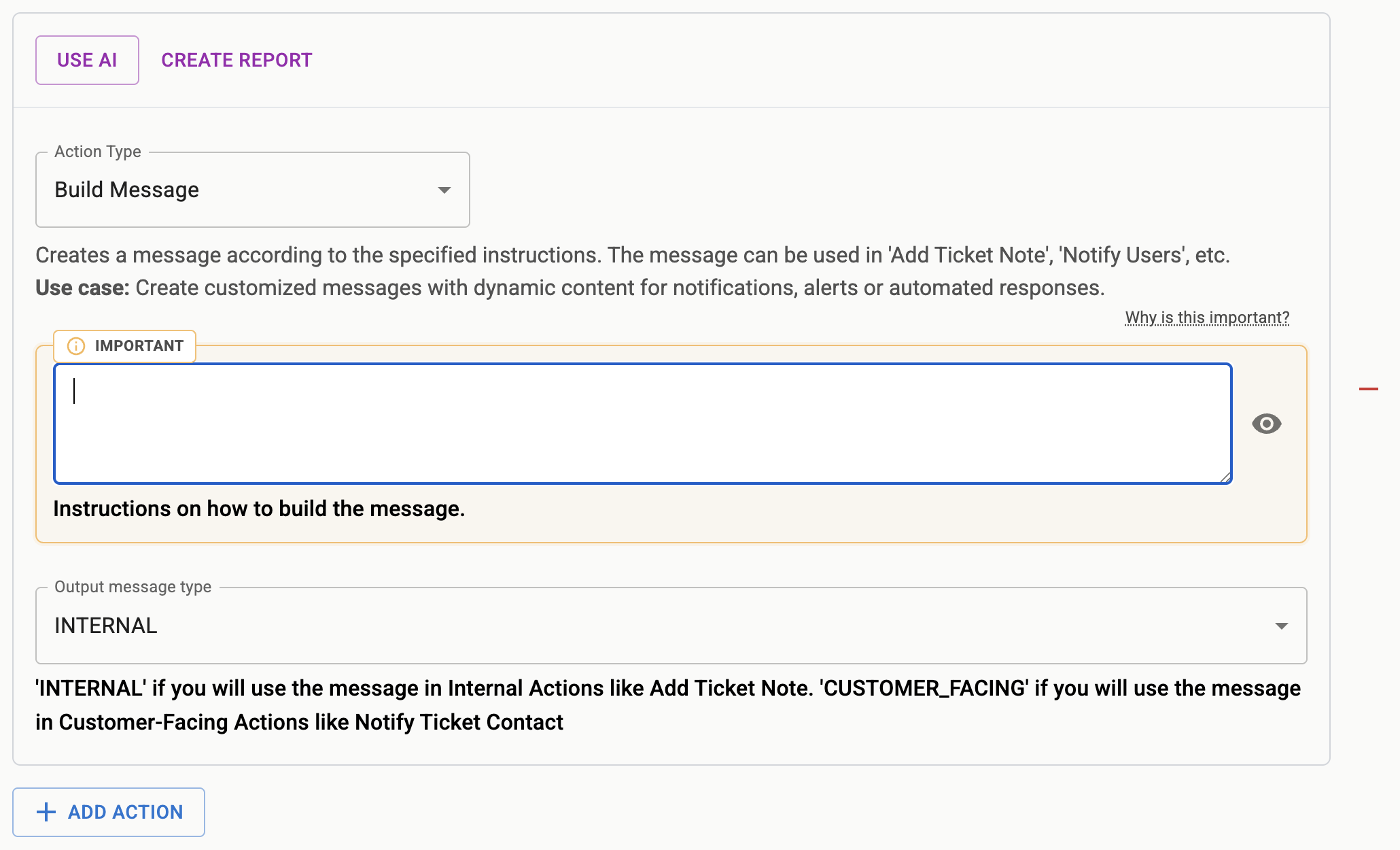The managed services industry is experiencing a seismic shift. According to recent studies by Canalys and Channel Futures, MSP revenue is projected to grow 11% or more in 2024, with 62% of MSPs increasing their AI deployments in Q4 2023 alone. The message is clear: AI to increase revenue for MSPs isn't just a future possibility—it's happening right now.
But here's the challenge: while 92% of MSPs plan to invest in AI, 87% admit they lack the experience to meet customer needs effectively. This gap represents both a massive opportunity and a critical risk for MSPs who want to stay competitive.
In this comprehensive guide, we'll explore seven proven strategies that successful MSPs are using to leverage AI for revenue growth, including practical implementation steps and real-world applications that you can start using today.
The Current State of AI in Managed Services
The numbers tell a compelling story. Research from The Channel Company shows that 48% of solution providers now offer AI consulting services, while 43% provide AI integration services. More importantly, MSPs using AI report significant improvements in key metrics:
- 60% reduction in ticket resolution times
- 38% increase in profitability potential across industries (Accenture study)
- 95%+ accuracy in automated ticket categorization
- 30% improvement in customer satisfaction scores
These aren't theoretical benefits—they're measurable results that forward-thinking MSPs are achieving today.
7 Proven AI Strategies to Increase MSP Revenue
1. Automated Revenue Opportunity Detection
One of the most powerful applications of AI for MSPs is automatically identifying revenue opportunities from support tickets. When a client reports a storage issue or performance problem, AI can analyze the situation and generate personalized upgrade recommendations.
How it works: AI analyzes ticket content, client history, and system data to identify upselling opportunities. For example, when a disk space alert triggers at 90% capacity, the system can automatically generate a professional message offering an SSD upgrade with specific pricing and benefits.
Revenue impact: MSPs report 15-25% increases in hardware sales through automated opportunity detection, with higher conversion rates due to timely, relevant recommendations.
2. Intelligent Ticket Triage and Prioritization
AI-powered ticket triage doesn't just improve efficiency—it directly impacts revenue by ensuring high-value clients receive priority attention and reducing the risk of SLA violations that can result in penalties or client churn.
Implementation benefits:
- Automatic categorization with 95%+ accuracy
- Priority assignment based on client value and SLA requirements
- Reduced manual processing time by 70%
- Improved first-time fix rates
Revenue protection: By preventing SLA violations and improving service quality, MSPs can maintain premium pricing and reduce client churn by up to 20%.
3. Proactive Issue Resolution
AI's predictive capabilities allow MSPs to identify and resolve issues before they impact clients, transforming reactive support into proactive value delivery.
Key applications:
- Predicting hardware failures before they occur
- Identifying security vulnerabilities in advance
- Monitoring performance trends to prevent outages
- Automated patch management optimization
Value proposition: Proactive services command premium pricing, with MSPs charging 20-40% more for predictive maintenance compared to reactive support.
4. Automated Customer Communication
Consistent, professional communication is crucial for client satisfaction and retention. AI can generate contextually appropriate messages for various scenarios, from status updates to service recommendations.
Communication automation includes:
- Ticket status updates with technical details
- Proactive maintenance notifications
- Service completion summaries
- Upgrade recommendations with business justification
Efficiency gains: Technicians save 2-3 hours per day on communication tasks, allowing them to handle 25% more billable work.
5. Enhanced Security Services
With cybersecurity threats evolving rapidly, AI-powered security services represent a significant revenue opportunity for MSPs. AI can analyze millions of security events in real-time, providing capabilities that would be impossible with manual monitoring.
AI security applications:
- Anomaly detection and threat identification
- Automated incident response
- Predictive threat analysis
- Compliance monitoring and reporting
Market opportunity: Managed security services command premium pricing, with AI-enhanced offerings typically priced 30-50% higher than traditional security services.
6. Scalable Service Delivery
AI enables MSPs to scale their operations without proportionally increasing headcount, directly improving profit margins and enabling growth into new market segments.
Scaling benefits:
- Handle more clients with existing staff
- Provide 24/7 support capabilities
- Standardize service quality across all clients
- Reduce training time for new technicians
Growth enablement: MSPs using AI report ability to grow client base by 40-60% without adding proportional staff.
7. Data-Driven Business Intelligence
AI transforms the vast amounts of data MSPs collect into actionable business intelligence, enabling better decision-making and strategic planning.
Intelligence applications:
- Client health scoring and churn prediction
- Service profitability analysis
- Resource optimization recommendations
- Market trend identification
Strategic value: Data-driven insights help MSPs identify their most profitable services and clients, enabling focused growth strategies that can increase overall profitability by 25-35%.
Real-World Implementation: How Neo Agent Drives Revenue Growth
Neo Agent has a built-in action that allows you to automatically generate messages for your clients. Let's say you want to automatically suggest to new clients to upgrade to a new service. This action can be used to send emails, add notes to tickets, or distribute messages through Teams notifications. To set this up, head over to the Neo Agent Dashboard and create a new workflow with the Build Message Action.

The most important part of this action is writing very specific instructions for the AI to follow. In this case, we want to suggest to new clients to upgrade to a new service.
Good instructions example
"Analyze the client's current device from the ticket details. If they are a new client (less than 6 months) and their current setup shows they have less than 500GB storage or are using traditional HDDs, generate a professional message suggesting an SSD upgrade. Include specific benefits like '3x faster boot times' and '50% reduction in application load times.' Mention our current promotion of 20% off SSD upgrades for new clients. Keep the tone consultative, not pushy. End with a specific call-to-action to schedule a 15-minute consultation call."
Bad instructions example
"Send a message about upgrades to clients when they need them."
Getting Started with AI Revenue Generation
Ready to harness AI to increase revenue for your MSP? Here's your action plan:
- Assess your current state: Evaluate your existing processes and identify areas where AI could have the biggest impact
- Choose the right platform: Look for comprehensive AI solutions that integrate with your existing tools
- Start with a pilot: Begin with one specific use case and measure results
- Scale gradually: Expand AI implementation based on proven success
- Invest in training: Ensure your team is prepared to work effectively with AI tools
The opportunity is clear: AI to increase revenue for MSPs isn't just possible—it's essential for staying competitive in today's market. The question isn't whether to implement AI, but how quickly you can get started.
Frequently Asked Questions About AI to Increase Revenue for MSPs
How quickly can MSPs see revenue increases from AI implementation?
Most MSPs begin seeing measurable results within 30-60 days of implementation. Initial benefits typically include improved efficiency and faster ticket resolution, with revenue increases from upselling and improved client retention becoming apparent within 90 days.
What's the typical ROI for AI investments in managed services?
Studies show that AI implementations in managed services typically achieve ROI within 6-12 months, with many MSPs reporting 200-400% ROI within the first year through improved efficiency, reduced costs, and increased revenue opportunities.
Do I need technical expertise to implement AI solutions?
Modern AI platforms are designed for business users, not just technical experts. Look for solutions that offer intuitive interfaces, comprehensive training, and ongoing support to ensure successful implementation regardless of your technical background.
How does AI help with client retention and satisfaction?
AI improves client retention by enabling faster response times, proactive issue resolution, and more consistent service delivery. Many MSPs report 20-30% improvements in client satisfaction scores and significant reductions in churn rates after implementing AI solutions.
Can AI really generate new revenue opportunities automatically?
Yes, AI can analyze support tickets, system data, and client history to automatically identify upselling opportunities like hardware upgrades, security enhancements, or additional services. The key is having AI that can generate professional, contextually appropriate communications to present these opportunities to clients.
What types of AI applications provide the highest revenue impact for MSPs?
The highest-impact applications typically include automated revenue opportunity detection, intelligent ticket triage, proactive issue resolution, and enhanced security services. These applications directly impact both operational efficiency and revenue generation.

